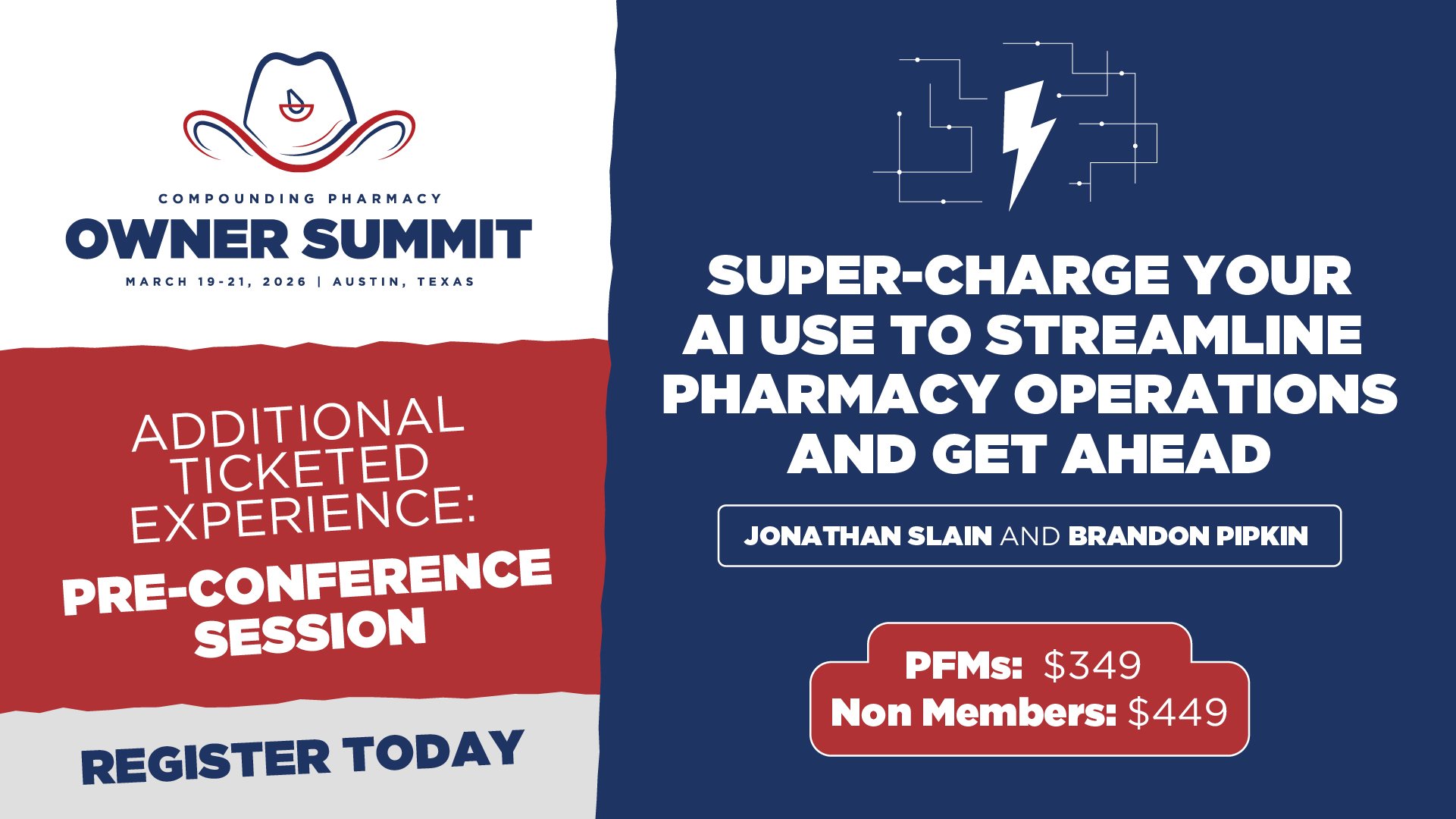Create your very own AI at Owner Summit 2026
We’ve got a terrific and timely pre-conference session at the Owner Summit: “Super-Charge Your AI Use to Streamline Pharmacy Operations and Get ...
Being an exceptional compounding professional means you never stop learning


We advocate for compounding pharmacies and facilities on a range of state and federal issues affecting patient access to compounded medications. We represent pharmacists and technicians in both traditional 503A compounding pharmacies and 503B outsourcing facilities, as well as prescribers, patients, educators, and suppliers. We’re 5,000 members strong and growing.

We’ve got a terrific and timely pre-conference session at the Owner Summit: “Super-Charge Your AI Use to Streamline Pharmacy Operations and Get ...

Introducing CCE from APC: a clearer, more credible, and more practical path to accreditation for compounding pharmacies

Congressmen from Lilly’s home state have introduced a bill meant to limit legitimate compounding and protect drug makers' profits.

Join attorney David Kosar on January 22 for our most popular annual webinar, “Survey of State Compounding Law Changes 2025 and Proposed 2026.”

Some of the latest news from the world of pharmacy compounding

.png?width=410&height=320&name=image-container%20(1).png)
.png?width=410&height=320&name=image-container%20(2).png)
.png?width=411&height=320&name=image-container%20(3).png)
.png?width=410&height=320&name=image-container%20(4).png)

.png)